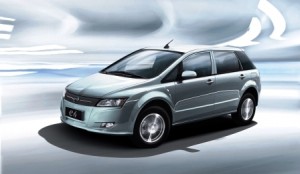The name, BYD, is short for Build Your Dreams, but these days, it’s more like a nightmare for the once-promising Chinese battery-car maker.
With sales this year off by 23%, the maker is planning to lay off as many as 2,600 workers – somewhat ironically, most of them initially coming from its sales and marketing department. Looking for a way to revive its faltering momentum, the company is exploring the possibility of moving the manufacturer up-market, it says.
The maker’s problems could cause further delays in its planned entrance into the U.S. market. Already pushed back by several years, BYD had been hoping to set up a network of stores that would not only handle the maker’s battery-cars and plug-in hybrids but also sell a mix of green technologies ranging from solar chargers to LED light bulbs.
Backed by billionaire American investor Warren Buffett, BYD started out as a lithium-ion battery manufacturer – growing to becoming one of the world’s largest suppliers for cellphone and laptop computer applications. But Chairman Wang Chuanfu had hoped to scale up that technology for use in battery-based vehicles like the F3DM plug-in and E6 battery-electric vehicle.
BYD was, in fact, the first major maker to bring a plug-in to market, nearly two years ago. But the vehicle quickly experienced technical troubles and the subsequent recall seemed to trigger a cascade of problems.
While sales did grow 15.5% last year, to 520,000, they fell short of a 600,000 unit target –which had already been scaled back from an earlier goal of 800,000. Despite the initial downturn this year – in a Chinese market that continues to set sales records – BYD still is targeting volumes of between 550,000 and 570,000 for all of 2011. But industry analysts would be less surprised if BYD misses that target, as well.
But investors appear to be skeptical. With profits off 89%, at $43 million, for the first half of this year BYD’s recent initial public offering fell well short of expectations. It had hoped to raise $338 million but ultimately pulled in just $219 million.
In an interview with the Wall Street Journal, key BYD executive Stella Li said she is hoping the company will be able to achieve a profit rebound by the middle of 2012 – though, significantly, she suggested that this will likely be based on rebuilding demand for its gasoline-powered models. It’s unclear when and how BYD will charge up demand for its electrified offerings.
Meanwhile, to take advantage of shifting trends in the fast-maturing Chinese market, Li said the maker plans to move a bit up-market with its product line-up, targeting buyers now looking to trade in their first cars.

